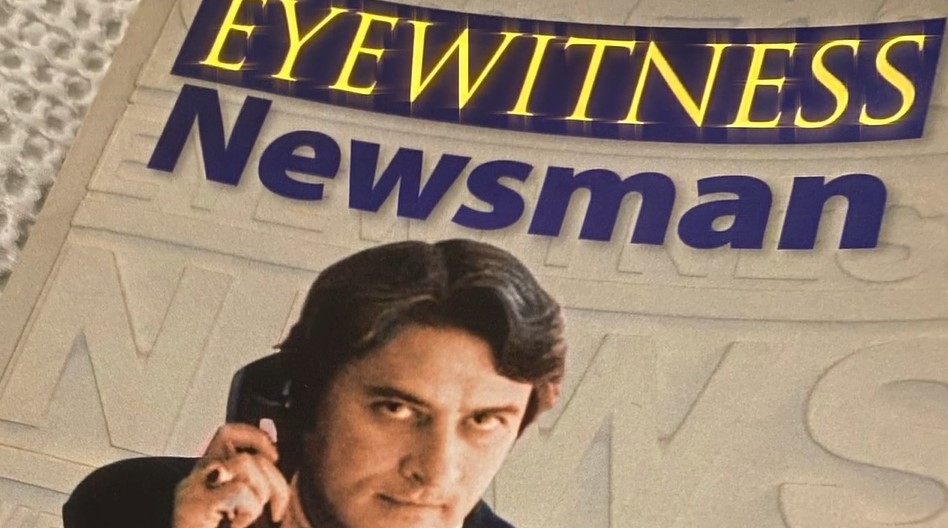 Prior to the tragedy 100 years ago, wireless communications in the U.S was close to anarchy. There wasn't much public sentiment for regulating a technology that few fully understood or that was as intangible as the "airwaves." But the upshot of the disaster was a universal call for government regulation of wireless in the progressive spirit of the day. Wireless was clearly too important now to be left solely to the vicissitudes of free enterprise. The regulation carried over to broadcasting a decade later. So when you’re filling out renewal forms or pondering the fate of your spectrum, you can blame that damn iceburg.
Prior to the tragedy 100 years ago, wireless communications in the U.S was close to anarchy. There wasn't much public sentiment for regulating a technology that few fully understood or that was as intangible as the "airwaves." But the upshot of the disaster was a universal call for government regulation of wireless in the progressive spirit of the day. Wireless was clearly too important now to be left solely to the vicissitudes of free enterprise. The regulation carried over to broadcasting a decade later. So when you’re filling out renewal forms or pondering the fate of your spectrum, you can blame that damn iceburg.
Titanic’s Fate Sealed That Of Broadcasting
Later this month, the FCC is likely to heap another regulatory chore on broadcasters — the requirement to post their public inspection file online. It’s not a big deal as these things go, but it has set broadcasters grumbling again.
So whom or what do fed-up station managers blame for the new imposition on their operating budgets?
Well, a lot of things I supposed, but ultimately the iceberg that sank the Titanic. Or maybe Captain Smith for running into it.
It’s literally true. The Titanic’s sad fate 100 years ago this Sunday led directly to the government takeover of the spectrum in the U.S. and to the regulation of all its users.
I get this from Susan Douglas, who wrote a book on the early history or wireless communications (Inventing American Broadcasting, 1899-1922) and who sees the Titanic saga as a turning point in how the nation dealt with wireless communications, then only 13 years old.
“What the Titanic disaster rendered inevitable was that the spectrum would be seen as a common property resource in which everybody had an interest,” says Douglas, now a professor at the University of Michigan.
Prior to the tragedy, wireless communications in the U.S was close to anarchy — it was “still a frontier,” in Douglas’ words. The Navy, capable amateurs and pioneering wireless companies like Marconi and United Wireless knocked heads trying to find open frequencies, hoping that the rapid developments in the technology would somehow cure the rampant interference problems.
Recognizing the importance of wireless to maritime safety, Congress in 1910 enacted a law that mandated that some ships be equipped with wireless gear, but it did nothing to regulate use of the airwaves and mitigate the interference.
At this time, there wasn’t much public sentiment for regulating a technology that few fully understood or that was as intangible as the “airwaves.” The telegraph, then nearly 70 years ago, was never regulated, and it was doing just fine.
Foreshadowing the Tea Partiers of our day, editorials warned against wireless czars. Even the New York Times argued against meddling in the medium.
But attitudes changed radically after the Titanic‘s maiden voyage and the night of April 14-15, 1912. The tragedy starkly illustrated the value of maintaining order in the ether.
Immediately after Titanic hit the iceberg, wireless operator Jack Phillips began sending distress messages with the ship’s position. A Marconi station on the Eastern end of Newfoundland received one at 10:25 New York time.
Other ships also picked up the signals. The closest among them was the Carpathia, but it was 58 miles away and by the time it arrived on the scene three-and-a-half hours later it was too late to save those who had been pitched into the frigid water. However, it was able to rescue those who to had managed to find seats in the lifeboats and ferry them to New York.
The ship that was actually closest was the Californian. It was just 20 miles away and could have saved many lives if it had heard the call and responded quickly, but its captain had shut down its engine for fear of icebergs, cutting power to its wireless set, and its wireless operator was asleep. The 1910 law didn’t require around-the-clock wireless operation.
“Although this somewhat cavalier attitude toward wireless use aboard ships caused concern, no aspect of the tragedy outraged people more than the ceaseless interference, cruel rumor and misleading messages that filled the air from unknown sources during the disaster,” writes Douglas in Inventing American Broadcasting.
Every wireless operator along the Eastern seaboard seemed to be on the air, clogging frequencies with inquiries and messages. Out of the wireless cacophony emerged one report that the Titanic had not sunk and was being safely towed to Halifax. When it proved false, amateurs were accused of maliciously manufacturing it. Nothing was ever proved, but the charge stuck.
Americans also quickly acquired a new found respect for wireless. If amateurs were the villains, the wireless operators aboard the Titanic and Carpathia were the heroes.
Phillips never left his post at the Titanic’s wireless key. Statues were erected in his honor on both sides of the Atlantic. Guglielmo Marconi, who monitored events and was on hand for the emotion arrival of the Carpathia in New York, “was deified by the press” as a hero-inventor, says Douglas.
The upshot was a universal call for government regulation of wireless in the same progressive spirit of the day that had bought laws governing child labor, food and drugs. Wireless was clearly too important now to be left solely to the vicissitudes of free enterprise.
Responding to public sentiment and balancing competing interests, Congress passed the Radio Act of 1912 in August and it went into effect in December, just eight months after the sinking.
“The solution was that this would be a common property resource,” says Douglass. The government “regulated it and issued licenses, but [it] issued licenses to private companies who were then meant to be responsible custodians of their portion of the spectrum.”
At the time, commercial broadcasting — AM radio — was still eight years in the future. But the 1912 legislation was the foundation for the Radio Act of 1927 and then the Communications Act of 1934, which governs broadcasting and other commercial uses of the spectrum to this day.
Perhaps a strong government hand in wireless communications was inevitable. Without order — someone deciding who gets to use what frequencies, when and where — the value of wireless in all of its forms would have been severely diminished.
But the someone did not necessarily have to be the government. Had the government not acted, wireless might have flourished with the wireless pioneers — military, amateurs and commercials interests — sorting things out for themselves. As spectrum slowly took on the attributes of real property, they could have turned to the courts or private arbiters to settle disputes over frequencies, power and antenna locations.
Without government oversight all these years, making sure that stations were worthy of their licenses by doing things like maintaining public inspection files, broadcasting would look and sound much different than it does. I’m not saying worse or better, just different.
We will never know. All other possibilities went down with the Titanic in the North Atlantic a century ago.
P.S. I know what you are all thinking — that this column is simply Jessell’s lame attempt to get in on all the media hoopla leading up to the 100th anniversary of the Titanic‘s dramatic end. Well, that’s not true. I felt that Titanic’s central role in the development of broadcasting was a story that needed to be told.
By the way, I invite you back next year at this time when I plan to rerun this column — in 3D!
Harry A. Jessell is editor of TVNewsCheck. You may contact him at 973-701-1067 or [email protected].


























Comments (6)
Jason Crundwell says:
April 13, 2012 at 3:57 pm
Outstanding article, Harry! Kind of brought it all back to mind. Thank you.
Matthew Craft & David K. Randall says:
April 13, 2012 at 4:26 pm
Terrific article bu I disagree that the government did not need to be the institution that imposed order on the spectrum. Broadcasters are fortunate to have been required to trade public service for spectrum — a obligation that has made stations part of the heart and soul of every community. No website or social media service can ever match that relationship. It’s a tradition we should embrace and enhance for another 100 years.
Doug Halonen says:
April 13, 2012 at 8:07 pm
Professor Erik Barnouw covered much of this material in his three-volume “History of Broadcasting in the United States.” Harry, you hit it on the head regarding the anarchy. Until the Radio Act was passed, under the tutelage of then Commerce Secretary Herbert Hoover, radio stations regularly altered their frequencies and raised the power, if possible, to drown out the competition. Given the litigious nature of our society, had the government not taken a role in assigning spectrum space based on proper engineering studies, we’d probably still be waiting for TV while the radio operators fought each other in court.
Hope Yen and Charles Babington says:
April 13, 2012 at 10:13 pm
The Federal Government has a big sledgehammer, while the states have a common carpenter’s hammer. Countiies have chainsaws, and local governments have screwdrivers. On matters such as assigning specific frequencies, operating powers and licensing same, with requirements for station identifying, ascertainment methods (broadcasting), etc., we needed that big sledgehammer that only the Federal Government could provide. It was necessary and a good thing for all concerned. Unfortunately the same FCC today is way far into matters that common sense and the free market could and should provide, done with a screwdriver or regular hammer, not with FCC regulations. Until the era of the 1970’s and 80’s and beyond, much of what the FCC did was not only necessary, but valued by nearly all its users. Today, when it takes years just to get a CP or a License (during which the semi-annual STA FEE that must be paid while waiting), and Congress uses FCC auctions to raise CASH for the Treasury to replace the reckless spending Congress and the President has wrought on our nation, we broadcasters have to wonder when the common sense of the early days will return.
Ken Keller says:
April 16, 2012 at 9:26 pm
As usual, Jessell’s writing is even better than the movie.
Ashley Messina says:
April 18, 2012 at 5:35 pm
Thomas, “common sense” is an oxymoron, all the more so when government is involved.